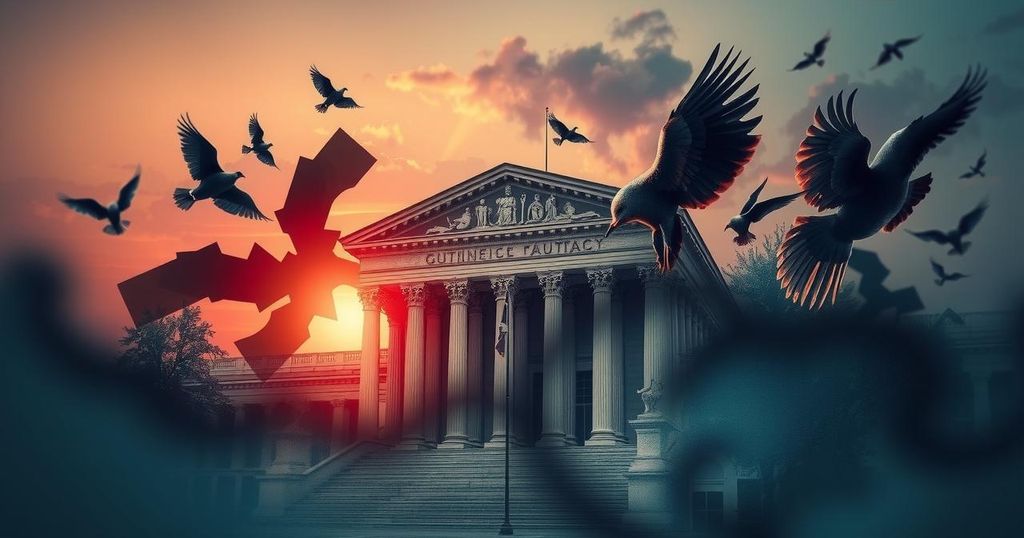Ecuador’s President Daniel Noboa Campaigns Amid Crime and Controversy

In Ecuador, President Daniel Noboa seeks re-election amidst a crime wave and political controversy. Despite issues like blackouts and human rights concerns, he enjoys a solid approval rating. Noboa’s hardline strategies against crime have boosted his popularity, yet criticisms of his governing style and actions raise alarms as he confronts a significant electoral challenge from rival Luisa Gonzalez.
Amidst a tumultuous backdrop of crime, blackouts, and political upheaval, President Daniel Noboa seeks re-election in Ecuador. In his 14 months of leadership, he faced significant challenges, including high crime rates and a deteriorating human rights situation, but maintains an approval rating above 50%. While his main rival, Luisa Gonzalez, attempts to unseat him, Noboa’s aggressive approach to crime has solidified his support among many voters. Yet, concerns persist regarding his governance style and the potential for overreach in authority.
Noboa’s ascent to the presidency was unconventional, marked by the abrupt dissolution of the previous government in May 2023. Following this event, he formed a coalition and surprisingly defeated seasoned politician Gonzalez in a close electoral battle. His election led to an 18-month term, making him Ecuador’s youngest president. However, critiques of his management style off the bat reveal a gap in preparedness and political savvy.
The onset of his presidency was marred by significant challenges, notably escalating crime rates due to drug trafficking and enduring economic struggles. The homicide rate surged, escalating Ecuador’s violence to unprecedented levels. The assassination of Fernando Villavicencio, a fellow presidential candidate, underscored the grave situation, while subsequent prison riots and assaults on television stations heightened public fear and scrutiny.
Responding to the chaos, Noboa declared a ‘war’ on gangs and enacted emergency measures to bolster law enforcement. Although these tactics led to a decline in homicide rates, they have also resulted in serious allegations of human rights violations by security forces. Public opinion remains divided, with some rallying behind Noboa’s strong stance while others criticize the implications of his heavy-handed governance.
Adding to the tension, Noboa’s decision to bypass constitutional requirements for his re-election campaign raised significant eyebrows. Anomalies in his administration and reported infractions led to condemnation from various groups, including Indigenous rights coalitions. Critics argue that his way of handling political matters reflects a concerning trend of authoritarian governance.
Ecuador is currently grappling with a multifaceted crisis characterized by rampant crime, political instability, and economic distress. President Daniel Noboa’s tenure has been marked by unprecedented challenges including high homicide rates fueled by drug trafficking and widespread public dissatisfaction. His election followed a unique transition of power after the previous president dissolved the government to avoid impeachment, propelling him into one of the most demanding leadership roles in Ecuador’s recent history.
President Daniel Noboa’s bid for re-election is set against the backdrop of significant socio-political turmoil in Ecuador. While his aggressive crime-fighting strategy has garnered him some support, concerns over human rights violations and governance practices pose threats to his administration. As the young leader navigates his presidency, the upcoming elections will determine whether he can maintain public trust and effectively address the country’s ongoing challenges or face consequences for his actions.
Original Source: www.aljazeera.com







